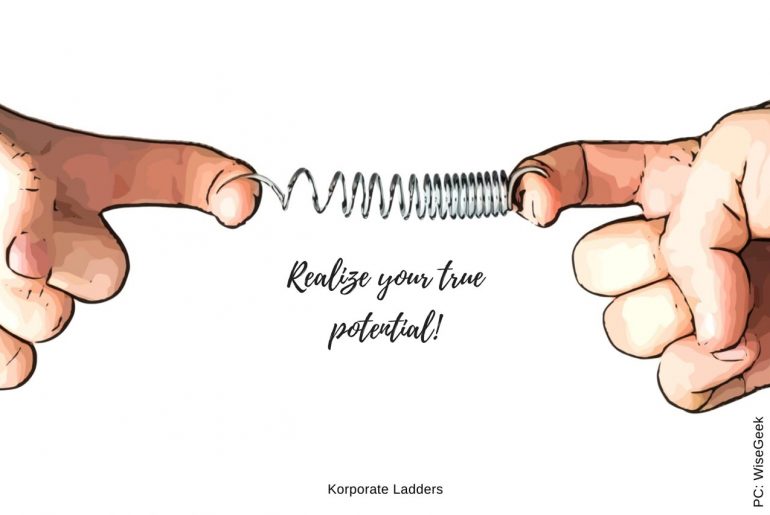Every human being – regardless of race, sex, or any other characteristic, has the incredible capacity to realise their potential: to feel confident, joyful, and fulfilled. Though it will be no easy task, there are several concrete steps and changes you can make on your path to this realisation.
1. Determine your core values. In order to realise your full potential, you must know and live according to your core values. These are the things that shape how you view yourself, others, and the world around you. Studies suggest that you will find your life more meaningful, and feel a deeper sense of well-being, if you live a life that is “value-congruent,” or in line with what’s most important to you.Ask yourself some questions to get started:
- Think of two people you really admire. What do you admire about them? What do you find inspiring? Why? How do you think these things could manifest in your own life?
- If you could change just one thing in your community, what would you change? Why?
- If your house was on fire (and your family and pets were all safe), what three things would you try to rescue? Why?
2. Examine your responses for themes. Once you’ve answered the above questions, examine your responses to see if any themes or patterns emerge. For example, perhaps you really admire your mother’s selflessness and empathy and your brother’s work ethic. Maybe you would save your family photos, your wedding dress, and a cherished family memento. These would suggest that one of your values is relationships, especially with your family.
- Your values are yours, and no values are “superior” or “inferior” to any others. Some people may value Competitiveness while others value Collaboration more highly. There is nothing “wrong” with either of these values.
3. Identify areas that are not consistent with your values. If you don’t feel like you’re living up to your true potential, it could be because parts of your life are currently not value-congruent. For example, perhaps you were raised to be self-effacing and not take credit for your achievements, but a core value for you is Acknowledgement. You probably wouldn’t feel like you were realising your true potential if you were not acknowledging your accomplishments, and if others didn’t occasionally acknowledge your work too. Think about areas in which your life doesn’t match up with your values, and see whether these are areas in which you’d like to change.
4. Decide what realising your true potential looks like. Once you have a good idea of your core values and what areas of your life could use a little development, take some time to sketch what you envision as realising your true potential. Is it personal improvement? More success in your career (or even changing careers)? If you have identified areas of your life that are not currently value-congruent, this could be a good place to start.
- For example, perhaps you really value family, but your job demands so much of your time that you aren’t getting the quality time with your loved ones that you really need. Realising your full potential in this case could mean finding an appropriate job so that you can become the spouse/parent/friend that you really want to be.
- Or, perhaps you feel stuck in a mid-level job with no hope of advancement, even though ambition is a core value for you. If this is the case, realising your true potential could mean changing careers to something that allows you to challenge yourself and grow in new ways.
5. Visualise the person you want to be. Reflect on what realising your full potential means to you. Is it a way of being? Achieving a certain level of income? Getting a designation you always aspired for? Most people will have different definitions of potential. It is important that you have some sense of what your potential means to you.
What does the life of future-you look like? What do you do? Who are you with? How do you feel? Imagine this in as much detail as possible.
- Examine the character strengths and skills that future-you has used to get to this place. Think about which of these strengths and skills you already have, and which you need to further develop.
- Decide how you can develop the areas you identified.
- It is OK to change your mind as you learn more about yourself.
6. Be patient and kind to yourself. Achieving your true potential will take time and effort. More importantly, it will take self-compassion. Acknowledge your strengths and skills as well as the areas in which you need to grow. Honour the efforts you make each day toward realising your true potential.
To be able to truly manifest your true potential, there needs to be a guided process starting with deployment of scientifically proven tools. They bring out your true and objective personality. Thereafter, these insights can be mapped to draw an emphatic future plan to guide you to reach the highest levels of success.
Do not wait anymore, at Korporate Ladders we help you experience each of this.
Contact Us Now.



